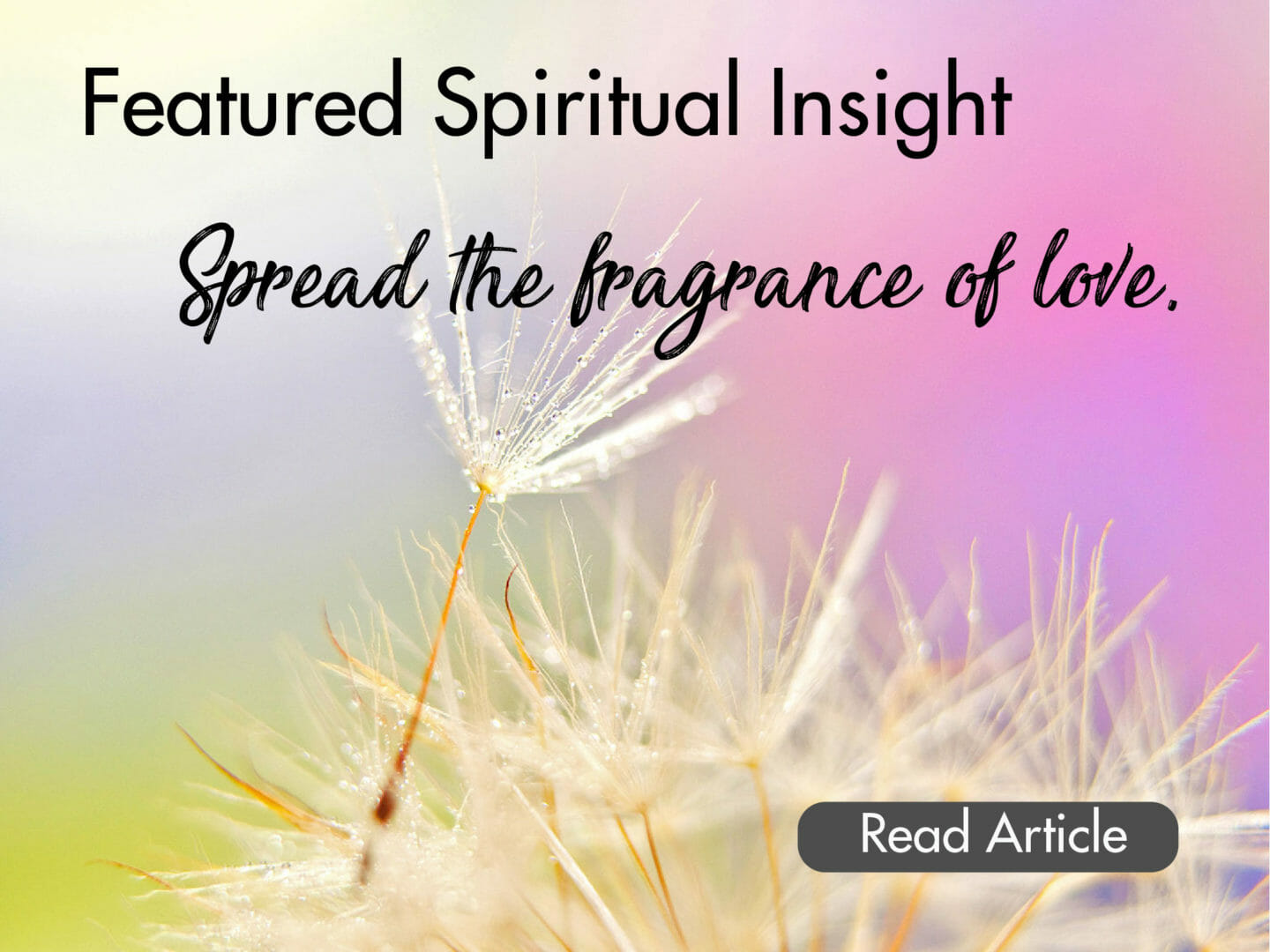Crisis Presents Opportunity
Guest Author
We are living during an unprecedented time on Earth. Advancements in science and technology have provided humans with a world hardly recognizable from the one we inhabited only a few short centuries ago–and these few short centuries, a mere blip on the vast timeline of our known universe. The advancements are astounding, and our understanding of the physical world has evolved exponentially. We have raised the standard of living, reduced poverty and starvation, enhanced the education of people all over, and transformed the home and work environments in ways that would stagger the imagination of those born even only a generation ago.
With all this progress, we still face international challenges, from climate change to political unrest to attempts to recover from the global pandemic. These challenges affect our lifestyles, personal and societal behaviors, finance and culture, and they have forced rapid transformation. As a case in point, let’s focus on the Covid-19 pandemic. While it will hopefully remain in remission, its dramatic effects will be seen for a long time.
The July 2020 issue of Scientific American features the article, “The Biggest Psychological Experiment.” The author (Lydia Denworth), details the effects of the pandemic on the human psyche. She writes that just recently, there were 2.6 billion people (1/3 the population of the Earth and the equivalent of the Earth’s entire population in the middle of the last century), living under “stay at home” orders and “experiencing the emotional and functional reverberations of this worldwide crisis.” She goes on to cite numerous professors from different countries around the globe who say:
1) “This is the largest psychological experiment ever conducted. . . .”;
2) “This is a potential mental illness tsunami. . . .”;
3) “We have the ability to study the science of human resilience in new ways. . . .”; and
4) “An estimated 65 percent will demonstrate at least minimal psychological symptoms.”
The professors are experts in the field of studying human resilience. They have researched the effects of hurricanes, tornados, terrorist attacks, life-threatening illness, and epidemics on the human psyche. However, nothing ever studied has been on such a massive scale as this global pandemic.
Additionally, we are gathering other statistics of the pandemic. Evidence of the crisis is witnessed in the statistics of increased suicides and overdose deaths and domestic violence calls to 911, etc. The mental health effects within our society of denying and preventing physical contact with our elderly living in nursing facilities, at hospitals with ill family members, or allowing gatherings at funerals to comfort the bereaved will be profoundly analyzed and studied in detail over the next decade.
“Stay at home” orders utilized during part of the pandemic forced a more focused and intense co-habitation experience. Families are experiencing and examining their internal dynamics in ways that were unknown before the pandemic. The re-evaluation, re-accessing, and re-prioritizing of what is truly important for families, workplace environments, and society are redefining cultures around the globe. This becomes heightened and especially poignant when death visited so many families in such a short time via this novel virus.
How can we address and confront the effect of the global crises that make life challenging, destroy our equanimity, and put so many lives into turmoil?
Albert Einstein said, “In the midst of every crisis lies great opportunity.” The dangers of the pandemic were easy to perceive. But what is opportunity is hidden within this global human crisis?
What is emerging as the most effective technique for coping with intense challenges is an ancient one. It has been practiced since the beginning of human consciousness, first by the few, and now embraced by millions worldwide. This approach is the “opportunity” that arises out of the “danger” inherent in the pandemic. The opportunity is meditation!
Around the globe, more and more people have been embracing the practice of meditation. A few years ago, Google announced that their most “googled” question of the year was: “What can I do to reduce my stress?” This year will likely see that question again on the top ten list. As we seek answers to the challenges confronting our lives, the multifaceted benefits of meditation continue to be unsurpassed in their effectiveness to address the needs of our time.
Harvard University conducted research on the effects of meditation in the late 60s. In 1970, Dr. Herbert Benson released his book, The Relaxation Response. This research affirmed the health benefits of meditation for lowering blood pressure, slowing the heart rate, increasing calmness, and more. The book became a best seller. Since those early studies, research has proceeded and increased exponentially. Landmark studies on meditation in 2005 to 2006 included demonstrating the thickening of both the white and grey matter affecting integral parts of the brain that control our awareness, attention, learning, memory, emotional regulation, pain perception and modulation. The enlargement of brain matter means increased neural activity in the brain, increased circulatory vessels, and enhanced potential for functionality. Do you think that these factors may be beneficial in reducing the likelihood of problems related to senile dementia, Alzheimer’s disease or other debilitating brain age-related diseases? Do you think beginning meditation at an early age could help one better respond and react to situations arising in life? The answer to both questions is yes!
In his 2019 book, Mind to Matter, Dawson Church, the National Science Foundation award-winning author, references 21 MRI studies that confirm that brain growth is a byproduct of meditation. We now know there are seven vital neurotransmitter hormones affected by meditation that directly affect human function. These are serotonin, which is effective in controlling depression; cortisol, the hormone released when humans experience stress; DHEA, a precursor to human growth hormone: GABA, known to affect addictive behavior and anxiety; endorphins, which act on our moods and block pain perception; human growth hormone, essential for cellular growth, tissue repair, and overall health; and melatonin, known to affect our sleep patterns and awareness of light and darkness. As the research advances, we can expect to deepen our knowledge of the additional effects of meditation on neurotransmitter hormones and other bodily functions.
Meditation has also been associated with lowering blood pressure, slowing the heart rate, enhancing immune system function, improving digestion, calming the emotions, focusing the attention, reducing insomnia, and improving sleep. Studies have demonstrated meditation’s effect of slowing the fraying of telomeres (the end cap portion of a chromosome). This research indicates that meditation can actually affect and slow down the aging process on a cellular level!
What is “Meditation” and what is it the “Opportunity” that arises out of a “Crisis?”
At one time, meditation practice(s) were hidden within the inner esoteric heart of ancient sacred traditions and shared with a limited chosen few. These sacred traditions were preserved in the teachings of enlightened beings.
The sacred traditions themselves appeared at different times in different places. They provided a social framework for culture in the regions of their origin and provided guidelines for living a spiritual life. They were a blueprint for individuals on their personal quest – pursuing the answers to life’s profound questions of who I am, where I came from, where I was going, how this all came to be, and why?!
In meditation, we learn to focus our attention and suspend the stream of thoughts that usually occupies the mind. Many voices are calling out to us during a crisis – calling humanity to seek meditation as a solution to the stress and challenges of our lives today.
The spiritual Master, Sant Rajinder Singh Ji Maharaj, has said this about the meditation process: “Within each person is a spiritual energy that has the power to make us whole. The technique by which we can tap into that power is meditation. Once touched by this inner force, we undergo a profound transformation. We experience improved health of the mind, body, heart, and soul. . . .
Prophets, mystics, and spiritual teachers have said that the path lies within. Through meditation, intense one-pointed prayer, and contemplation, they have traversed the duality and separation and become united to the ‘One.’ “
So the real opportunity available to us during any crisis is the awareness and pursuit of meditation on both an individual and global scale. We can witness an improvement in our ability to process our life experiences, better control over our emotions and reduced unintended reactivity, improved health, and the ability to pursue the inner pathway on life’s ultimate quest.
The “opportunity” that the recent pandemic presented humanity is to go within, experience the peace and love within ourselves, and solve the mystery of life. I leave you with a quote from an ancient sacred scripture. Written approximately 3000 years ago, this quote is timeless and epitomizes this message:
“When the senses and the mind are still,
And reason itself rests in silence,
Then begins the Path Supreme”
The Katha Upanishad
![]()
Guest Author Articles
Death and the Beyond
As a geriatric physician, Dr. Raider frequently deals with patients who are reaching the end of their lives. He shares insights learned that go beyond standard medical training.
Getting Hold of Your Thoughts
How can you control your thoughts instead of letting stress and worry control you? Dr. Young has answers that work.
A Scientific Approach to Meditation
Dr. Ritz lays out a plan for a successful scientific approach to meditation. Follow the steps to embark on your own spiritual exploration.
Latest Articles by
Sant Rajinder Singh Ji Maharaj
Serving God’s Creation
Many only want to serve God directly. We do not realize that it is also God’s work to serve God’s creation. Each day, life presents us with opportunities to help others.
Spiritual Spring Cleaning
When we focus on examining our thoughts, we need to evaluate what aspects of ourselves we want to cleanse. We need to understand what is cluttering our minds and hearts and keeping us from opening up to God’s love.
A Healthy Attitude to Failure
As we sit for meditation and prayer we should not be discouraged. We should do our part to meditate accurately, and leave the rest to God. Then one day we will find that all our efforts have borne fruit.





















